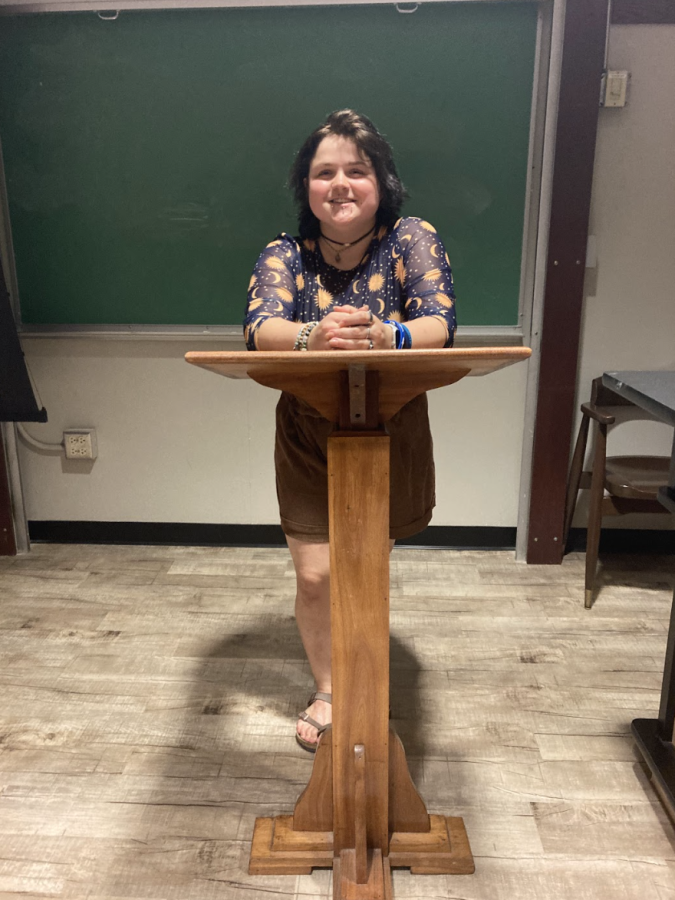True Life: queer, transgender Saint A’s student shares his story
September 22, 2022
Sophomore Asher Manning gave the first True Life Talk of the year on Sept. 15. True Life is a series of monthly informal discussions led by students of diverse life experiences, sponsored by the Center for Intercultural Learning and Inclusion, with support from the Office for Diversity and Inclusion. On Sept. 15, sophomore Asher Manning shared his story of being a queer and transgender student at Saint Anselm College.
First, Manning was approached by Wayne Currie, director of the Intercultural Center, last year about the possibility of giving a True Life Talk. Manning said, “My interest was piqued.” Since people know very little about the experience of being trans and queer, he was eager to take the opportunity to share his story.
In his Talk, Manning shared that his understanding of his own queerness began his freshman year of high school. He began by figuring out his sexuality, saying, “I knew I wasn’t straight by that time, but it was difficult to grasp that,” given his upbringing in a Catholic family. He described the evolution of his queer identity over his four years of high school, shifting between labels until he came to identify as queer and a transgender man.
He discussed that it was initially hard for him to come to terms with the fact that “it was okay to be queer” rather than following the life path expected of him to grow up and marry a man. He described the process of growing more comfortable in his queerness over the years and realizing that “if people don’t accept me, it’s their issue–not mine.”
Manning said that when it came time to apply to colleges, his parents found Saint Anselm and encouraged him to apply, interview, and tour the campus. Manning described how he “fell in love with the community here” and felt that it fit within his comfort zone, having previously attended Catholic schools.
Manning discussed instances of bullying and misgendering on campus and the toll that such struggles take on his mental health. He observed that there will always be people who will not “see you how you see yourself,” which was a tough reality to come to terms with. While finding it “difficult to interact with people who are so obviously not accepting,” Manning also talked about the process of finding his group of supportive, accepting people.
The Intercultural Center was the first place Manning was introduced to through the Transitions program, and it was there that he found an accepting group of people who were the first to learn and use his name and pronouns. Manning also formed meaningful, supportive connections in TEDA, the True Equality and Dignity Alliance.
As a history and secondary education major, Manning hopes to teach history after graduation. When asked about any impact his queerness may have had on his career plans, he eagerly answered, “When it comes to teaching history, there is a lot of [it] that is sheltered from high school students. As an openly queer teacher, I want to teach about queer history and, also, want to be there for my students as a queer educator.” He added that he hopes his future students will know that his classroom is a safe space and that their teacher will understand where they’re coming from.
The goal of the True Life series is to “expand your global knowledge,”. as Manning observed, “A lot of people don’t know about these issues,” of being queer and transgender. Manning approached the True Life Talk enthusiastically as a chance to educate his community, and those who attended showed up open to learning.



